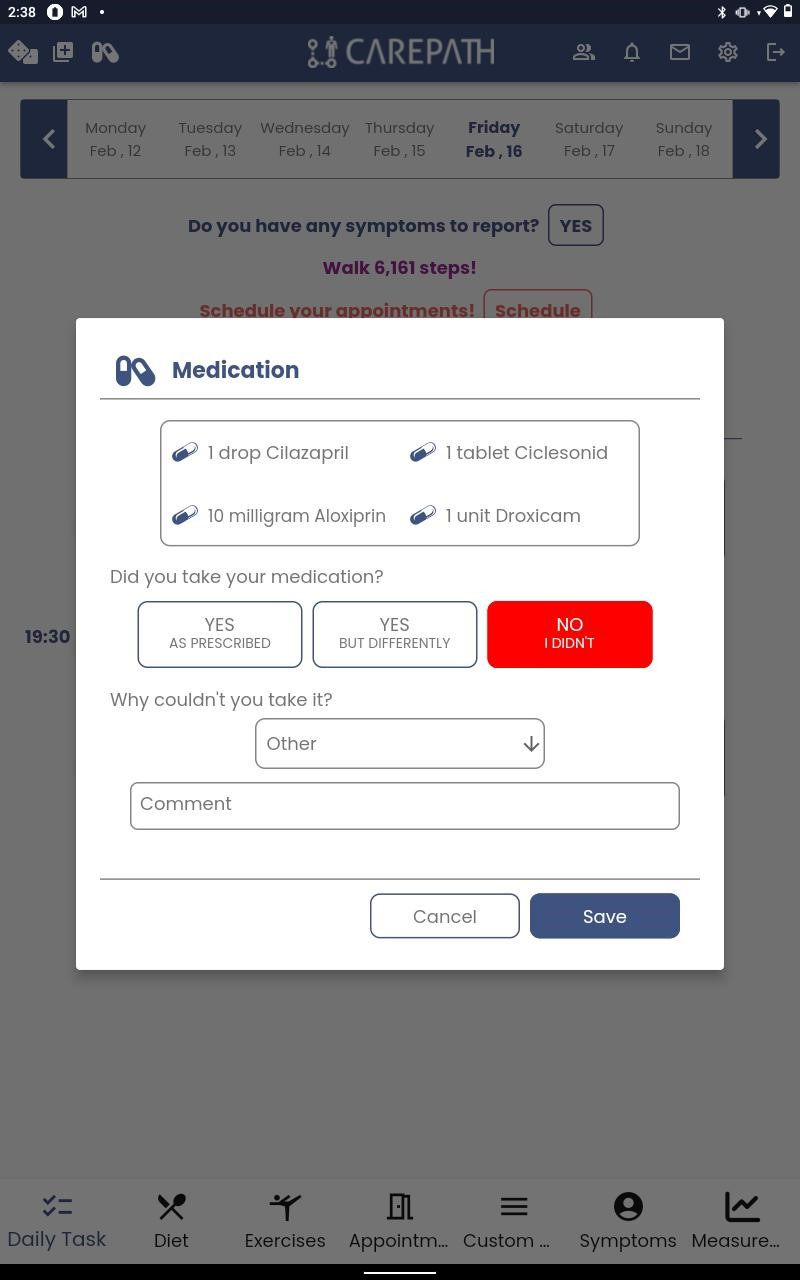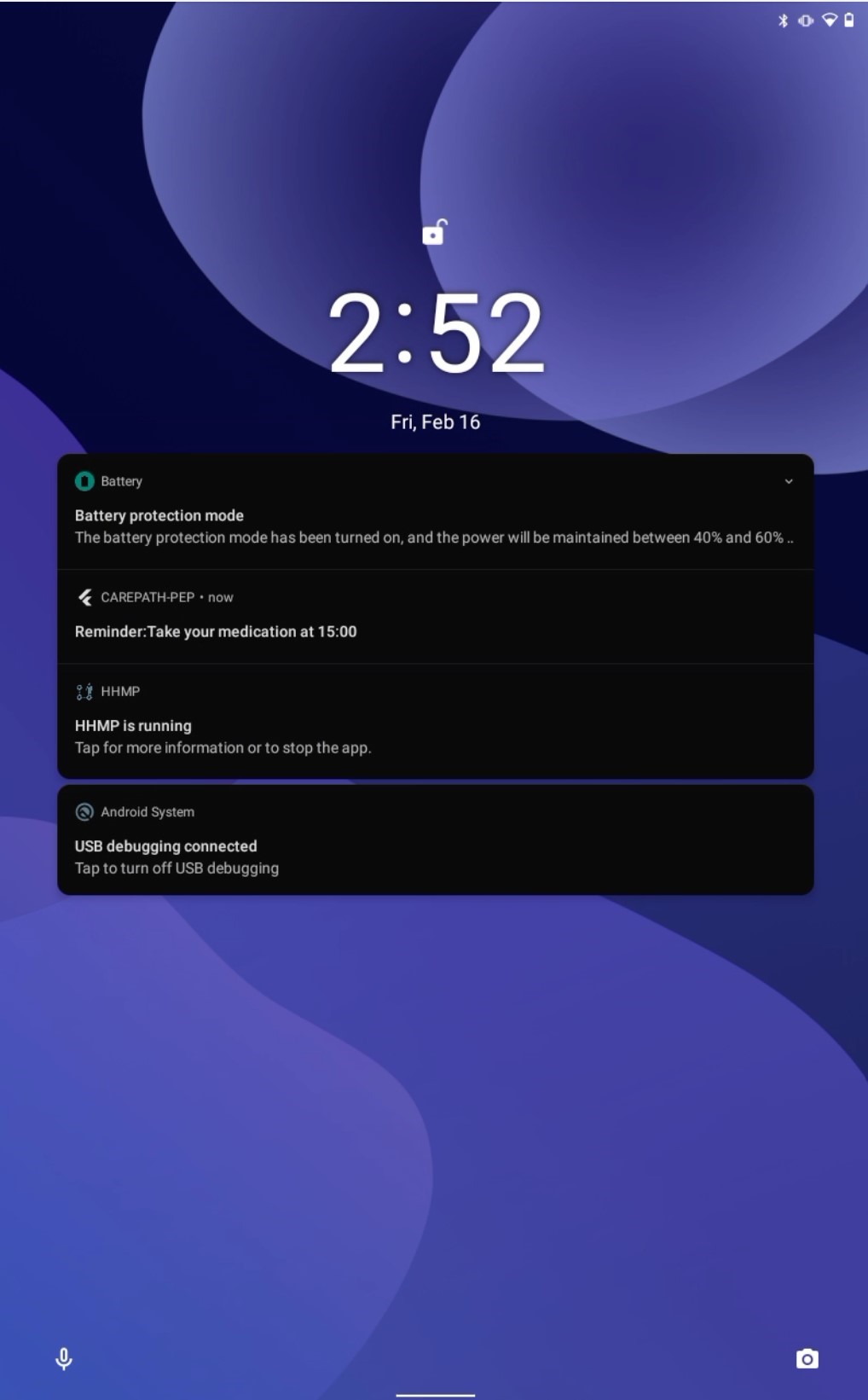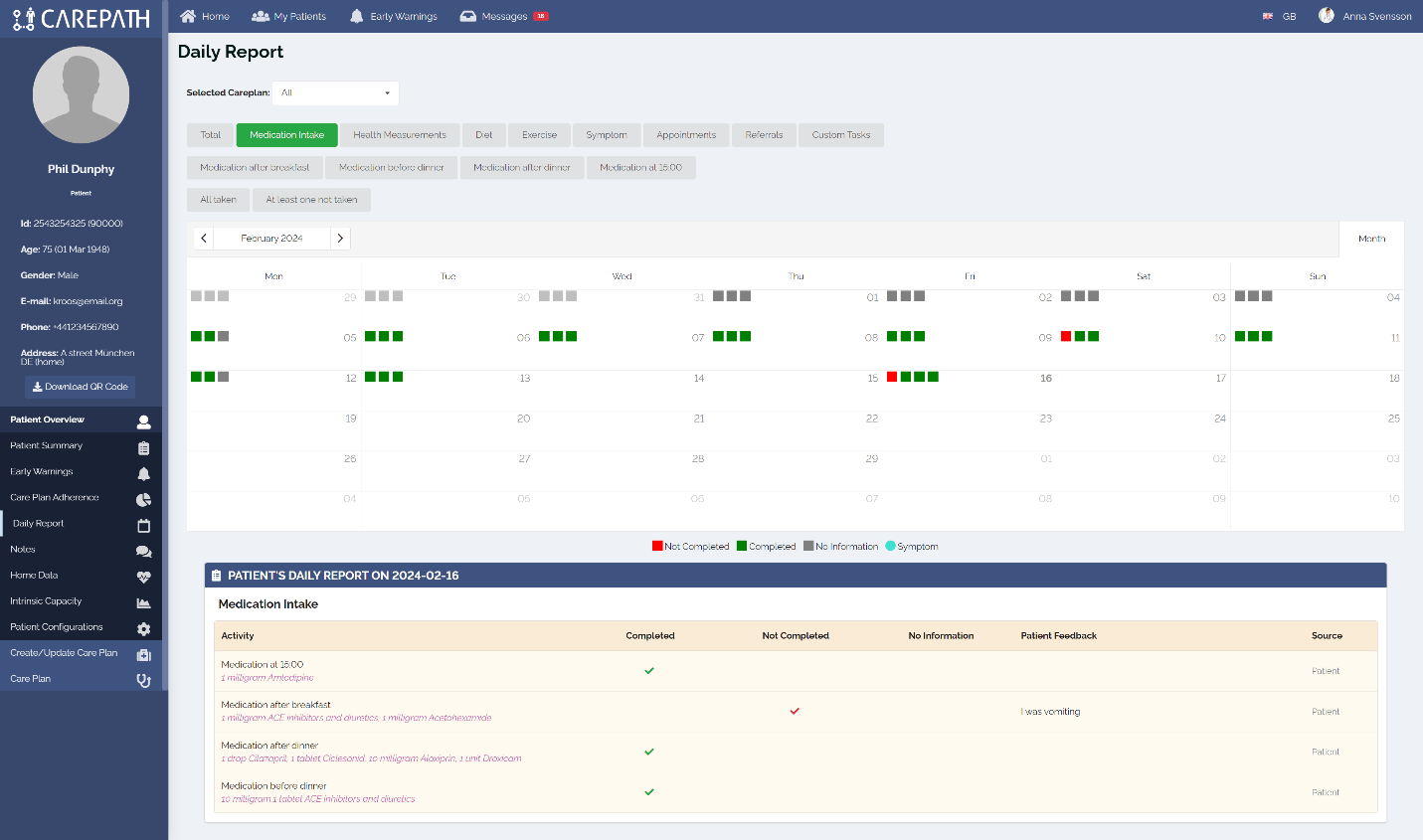Blog posts
The CAREPATH Approach for Enhancing Medication Management for Older Adults with Cognitive Impairment: Innovations and Challenges
Published on 30 November 2023Managing medications is quite challenging for older adults who have mild dementia or cognitive impairment [1]. Memory lapses and cognitive decline make it difficult for them to keep track of their medication schedules, and that can lead to missed doses or accidental overdoses [2]. The complexity of multiple medications further complicates the situation, overwhelming individuals with cognitive impairments [3]. Moreover, physical limitations and difficulties in reading prescription labels exacerbate the problem [4]. It is crucial to find effective strategies to simplify medication regimens and address these challenges collaboratively among healthcare providers, caregivers, and patients themselves.
Healthcare professionals face obstacles when it comes to assessing medication adherence among these patients. Due to memory deficits and cognitive impairments, patients have a really hard time while trying to accurately report their medication intake [5]. This uncertainty hinders treatment evaluation and may lead to adjustments increasing the risk of adverse effects. Innovative solutions, including digital medication monitoring systems and caregiver involvement, are crucial to enhance adherence monitoring and optimize patient care. The lack of knowledge regarding medication intake highlights the need for solutions that bridge the gap between doctor visits, prevent treatment errors, and improve patient outcomes [6].
The CAREPATH project presents solutions to tackle the challenges of medication management through the Patient Empowerment Platform (PEP) and the Advanced Integrated Care Platform (AICP). These platforms offer methods to assist individuals dealing with mild cognitive impairment or mild dementia.
PEP makes medication management simpler by categorizing medications based on their timing, simplifying the regimen for individuals grappling with cognitive challenges. The following image illustrates this feature, cdisplaying how medications are visually grouped according to their administration time, offering patients ca clear and intuitive way for them to organize their medication routines.

Furthermore, PEP includes a notification system to remind patients of their medication schedules, ensuring they don't miss any doses. The following image illustrates this feature, displays how patients receive notifications on their devices. By tapping on these notifications patients can access information about their medications and provide feedback about their adherence to them.

PEP also plays a crucial role in collecting this feedback about medication adherence from patients. This feedback is then presented in a format within the AICP for healthcare professionals. The following image, a screenshot of the AICP interface, shows how healthcare professionals can access detailed information about patients' medication adherence, helping them make informed decisions and enhancing the prospects for future personalized care plans.

By using the technology and engaging patients actively, the CAREPATH approach aims to improve medication management for older adults with mild cognitive impairment or mild dementia. It aims to improve health outcomes and quality of life for this population.
References:
- Kaasalainen, S., Dolovich, L., Papaioannou, A., Holbrook, A., Lau, E., Ploeg, J., Levine, M., Cosby, J., & Emily, A. (2011). The process of medication management for older adults with dementia. Journal of Nursing and Healthcare of Chronic Illness, 3(4), 407–418. https://doi.org/10.1111/j.1752-9824.2011.01114.x
- Haselberger, M. B., & Kroner, B. A. (2012a). Drug poisoning in older patients. Drugs & Aging, 7(4), 292–297. https://doi.org/10.2165/00002512-199507040-00004
- Arlt, S., Lindner, R., Rösler, A., & von Renteln-Kruse, W. (2008). Adherence to medication in patients with dementia. Drugs & Aging, 25(12), 1033–1047. https://doi.org/10.2165/0002512-200825120-00005
- Notenboom, K., Beers, E., van Riet‐Nales, D. A., Egberts, T. C., Leufkens, H. G., Jansen, P. A., & Bouvy, M. L. (2014). Practical problems with medication use that older people experience: A qualitative study. Journal of the American Geriatrics Society, 62(12), 2339–2344. https://doi.org/10.1111/jgs.13126
- Hudani, Z. K., & Rojas-Fernandez, C. H. (2016). A scoping review on medication adherence in older patients with cognitive impairment or dementia. Research in Social and Administrative Pharmacy, 12(6), 815–829. https://doi.org/10.1016/j.sapharm.2015.11.011
- Smith, D., Lovell, J., Weller, C., Kennedy, B., Winbolt, M., Young, C., & Ibrahim, J. (2017). A systematic review of medication non-adherence in persons with dementia or cognitive impairment. PLOS ONE, 12(2). https://doi.org/10.1371/journal.pone.0170651
 This project has received funding from the European Union’s
Horizon 2020 research and innovation programme under grant
agreement No 945169
This project has received funding from the European Union’s
Horizon 2020 research and innovation programme under grant
agreement No 945169